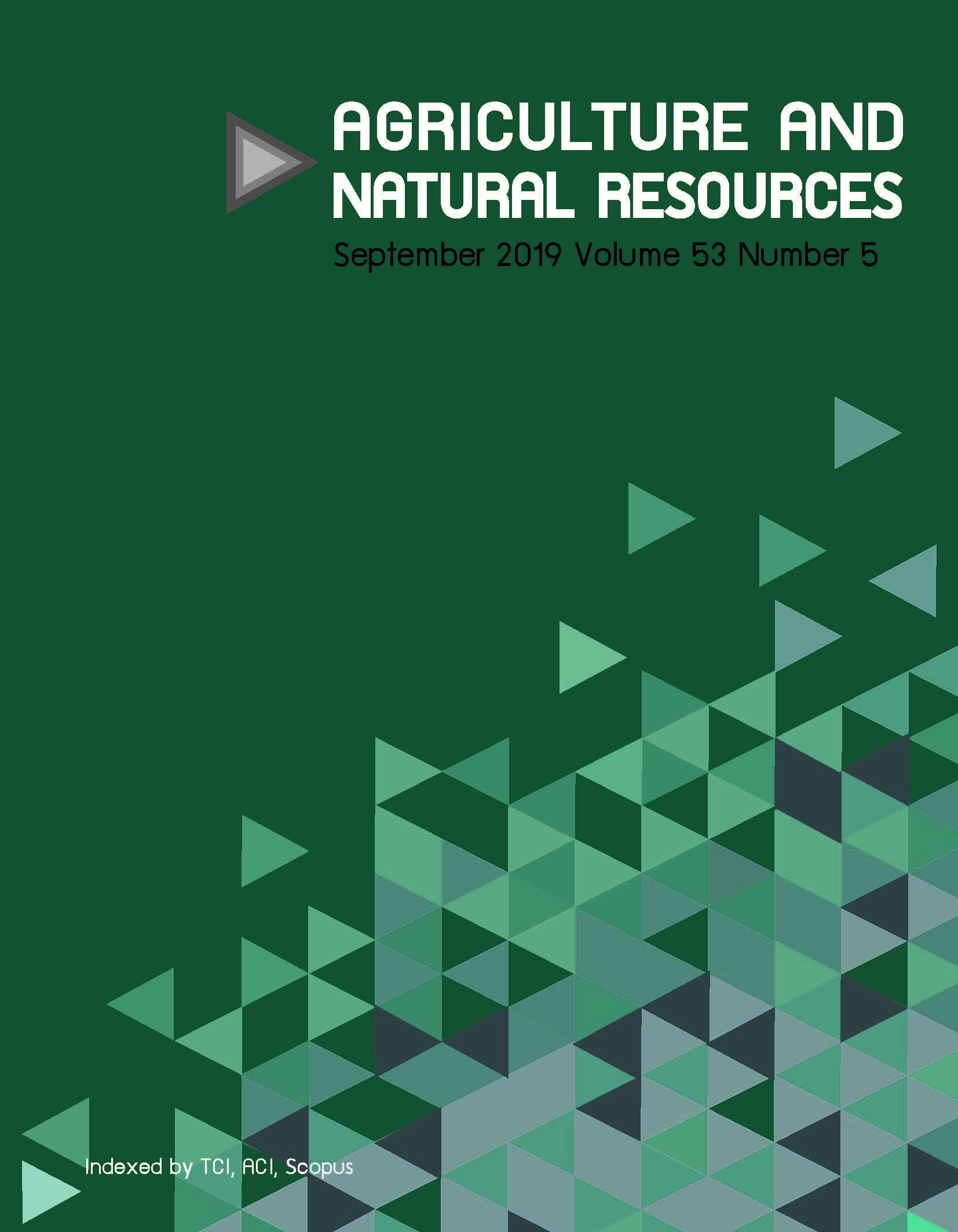Development of an emotion lexicon and its application in demographic characteristics and behavior of coffee consumers in Thailand
Keywords:
Behavior, Coffee, Demographic, Emotion, Focus group discussionAbstract
An emotion lexicon was developed and used to investigate the emotions related to coffee consumers’ behaviors and demographic characteristics. The 39 emotion terms of the EsSence ProfileTM (ESP) method were translated into Thai. Two focus group sessions were held with coffee drinkers aged 20–40 yr at Kasetsart University, Bangkok, Thailand to generate a list of emotions that occurred before, during and after the coffee drinking experience. Consequently, the terms were increased from 39 to 59. These emotion terms were applied in the next step with 50 consumers who were requested to verify the terms and to indicate which were applicable to themselves. Utilizing the check-all-that-apply (CATA) method, 47 emotions were identified in this step. A consumer survey was conducted to identify the different intensity levels of each emotion term with 437 consumers using a 5-point intensity scale. As a result, 47 emotion terms were eligible for the emotion lexicon related to Thai coffee drinkers. In addition, the survey also revealed that the emotional intensity levels were based on differences in coffee consumer demographic characteristics and consumption behavior which were then investigated in the final comparative analysis of the variables. The results were: female coffee drinkers would feel ‘Active’ more than males; consumers aged ≤ 40 yr would feel ‘Pleasant’, ‘Pleased’, ‘Social’, ‘Alert’ and ‘Nervous’; drinkers of brewed coffee would feel ‘Affectionate’, ‘Alert’, ‘Calm’, ‘Happy’, ‘Pleased’, ‘Social’ and ‘Extravagant’ more than instant coffee consumers, whereas consumers whose drinking frequency was ≥ 6 cups/wk would feel ‘Active’, ‘Essential’, ‘Relaxed’ and ‘Satisfied’.
Downloads
Published
How to Cite
Issue
Section
License

This work is licensed under a Creative Commons Attribution-NonCommercial-NoDerivatives 4.0 International License.
online 2452-316X print 2468-1458/Copyright © 2022. This is an open access article under the CC BY-NC-ND license (http://creativecommons.org/licenses/by-nc-nd/4.0/),
production and hosting by Kasetsart University of Research and Development Institute on behalf of Kasetsart University.







